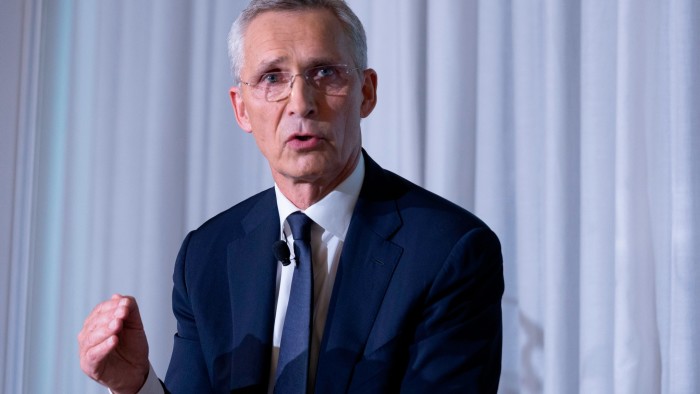Unlock the Editor’s Digest for free
Roula Khalaf, Editor of the FT, selects her favourite stories in this weekly newsletter.
Jens Stoltenberg, Nato’s former secretary-general, will make a surprise return to the frontline of Norwegian politics as finance minister, as the Nordic country frets about being caught in the middle of a US-EU trade war.
“I am deeply honoured to have been asked to help my country at this critical stage,” Stoltenberg, who served as prime minister for nine years, said on Tuesday.
Stoltenberg, who was head of Nato for a decade until last year, was known for his good relations with US President Donald Trump and for getting Sweden and Finland into the military alliance following Russia’s full-scale invasion of Ukraine in 2022.
One of his first jobs will be to deal with the prospect of Norway, which is not a member of the EU, potentially being hit by tariffs from both Brussels and Washington.
This comes at the same time as an intense energy debate that last week felled the previous coalition government over whether Norway should keep more of its electricity for itself to lower prices for consumers or export it to the EU and UK, an issue seen as crucial to future relations with Brussels.
Stoltenberg, who served as finance minister from 1996-97, was a charismatic leader of Norway’s one-time dominant Labour party for more than a decade until taking up the Nato role in 2014. He was set to return to Norway as central bank chief in 2022 but was forced to turn down the job after receiving an extension at Nato.
He also confirmed he would step down temporarily from his role as head of the Munich Security Conference.
As finance minister Stoltenberg will play a key role in reinvigorating Labour’s fortunes ahead of parliamentary elections in September, as well as dealing with problems between Oslo and its two main allies, the US and EU.
Stoltenberg became known as the “Trump whisperer” during his time at Nato for his ability to manage the volatile US president, praising him for his efforts to raise defence spending across the alliance.
Norway was set to meet Nato’s informal target of 2 per cent of GDP spending on defence only last year, and spends proportionately far less than other countries bordering Russia such as Poland, Estonia and Lithuania.
Stoltenberg’s entry into Norway’s government comes after the collapse of the two-party minority coalition over whether to sign several EU energy directives into law.
The rural, Eurosceptic Centre party — led by former finance minister Trygve Slagsvold Vedum — decided to leave, arguing Norway needed a new, more protectionist course on electricity.
Labour — led by Stoltenberg’s friend, Prime Minister Jonas Gahr Støre — will now govern alone until the September elections, and has made several new electricity proposals including a guaranteed nationwide cheap price for power and no new interconnectors for export to Europe.
The latter issue is particularly controversial in both Oslo and Brussels. Next year, two electricity interconnectors to Denmark from Norway are due to expire and the Labour party has indicated that it will campaign in the elections not to renew them. But this has sparked fury in Denmark, Sweden and across the EU.
Read the full article here




